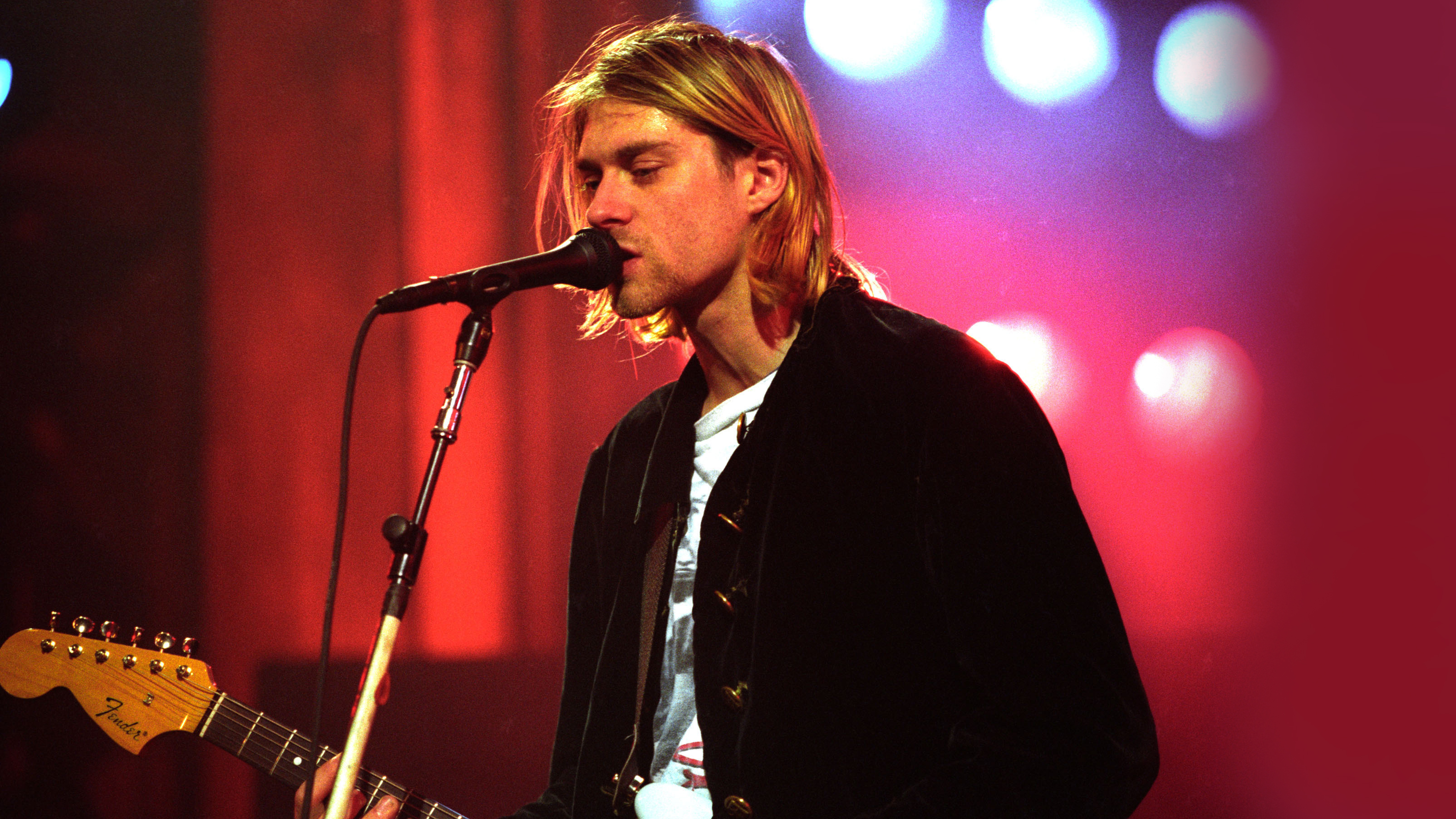
YouTuber and luthier Aaron Rash is back with another video Nirvana gear fans need to check out; there's nobody out there who puts as much effort into recreating Kurt Cobain's recorded and live tones. And this time he's had to rethink everything he thought about In Utero's.
We've already reported on Rash's diligent investigations into the Steve Albini-owned Veleno aluminium electric guitar that is a key component to many of the album's guitar tones – including its abrasive clean sounds. He's gone as far as creating his own aluminium design based on it that will be going into production. But what about the rest of the signal chain?
Kurt didn't use his SansAmp like that for the album at all
It's no secret that the Tech 21 SansAmp and Boss DS-2 Turbo distortion loomed large over Cobain's tone in this era; he drove fairly clean amps with distortion pedals for his sound. But how these two pedals were used together into a Fender Quad Reverb is frequently misunderstood. Even Rash admits he'd been approaching it wrong, but now after a two year journey he has answers.
"Everyone has the Kurt Cobain 'SansAmp settings' and that's how they set up their SansAmp and then they just play," Rash notes in the video above. "Except Kurt didn't use his SansAmp like that for the album at all. Those settings, maybe he used them live, but for the record that's not how he set it up. The sound of In Utero is actually a combo of the DS-2 going into the Sansamp and both of these different tones are going into the Quad Reverb. And it sounds exactly like the record."
He's right - it does. On Rash's research and tone-shaping journey he found there's two distinct tones Cobain on In Utero created using the two pedals. The first tone bypasses the DS-2 but the Sansamp settings are not the same as the commonly believed Cobain setup. Rash has even dialled in what he thinks are the correct Fender Quad Reverb amp settings – finding that Cobain probably used the 4x12 '70s amp's volume control to distort his tone further into fuzz territory.

The story of Kurt Cobain's Fender Mustang guitars in Nirvana
"For the second tone Kurt was going into the DS-2 [and the SansAmp] – and this is what I call the Presence Sound V1 because it's got a very bitey aggressive nature," says Rash. An example of this in full flow is the breakneck punk rock of Tourettes. Rash details the settings needed for both pedals in the video above, and the bright switch required on the Fender amp.
He even has the same Randall RG-120 Commander Amp Cobain had but he's convinced it's barely used on the album. "Basically everything is that Quad Reverb for In Utero. I think the Randall might have been used on Scentless Apprentice and maybe a few other small areas of the record. But I totally had it wrong – this Randall is not used much at all. Just know the bulk of everything is the Quad Reverb."
Get the MusicRadar Newsletter
Want all the hottest music and gear news, reviews, deals, features and more, direct to your inbox? Sign up here.
Rash doesn't just know this because he's nailed many of the tones; he had insider information. In Utero technician Bob Weston told Rash that producer Steve Albini "didn't do anything crazy or special" to Cobain's sound – in typical Albini style it was a representation of the sound of the Quad Reverb. Weston also confirmed to Rash the two pedals Cobain settled on after a day trying different gear.
It's to Rash's credit that he admits these discoveries mean his previous In Utero tone recreation videos are "wrong" so he's going to re-do them. And as you'll hear in the video, he really has got closer to anyone we've heard. He's even tackled non-album tracks recorded in the sessions including Sappy and the pummeling I Hate Myself And I Want To Die – the former was recorded a few times by the band over the years and the latter was first included on the 1993 Beavis & Butthead Experience film soundtrack.
But again, the Veleno-style guitar was a key component to the "hollow boxy" drive sound of the record. And he demonstrates it. But after spending two years chasing this tone, what next?
"It's kind of sad, honestly," admits Rash after reaching his destination. But he's building a Mosrite guitar next!
Subscribe to Aaron Rash's channel on YouTube and keep up to date.

Rob is the Reviews Editor for GuitarWorld.com and MusicRadar guitars, so spends most of his waking hours (and beyond) thinking about and trying the latest gear while making sure our reviews team is giving you thorough and honest tests of it. He's worked for guitar mags and sites as a writer and editor for nearly 20 years but still winces at the thought of restringing anything with a Floyd Rose.
“Every note counts and fits perfectly”: Kirk Hammett names his best Metallica solo – and no, it’s not One or Master Of Puppets
“I can write anything... Just tell me what you want. You want death metal in C? Okay, here it is. A little country and western? Reggae, blues, whatever”: Yngwie Malmsteen on classical epiphanies, modern art and why he embraces the cliff edge









